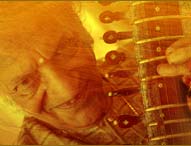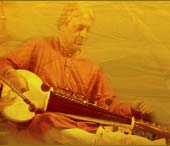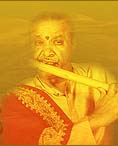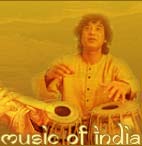Born On: 1881
Born In: Bengal, British Raj
Died On: September 6, 1972
Career: Sarod Player, Music Composer
Nationality: Indian
Ustad Allauddin Khan, fondly referred as Baba by his students, was one of the best sarodiyas and music composers that the country has ever produced. He is revered as the greatest instrumentalist and idol for many popular Hindustani classical musicians. Apart from being a well known teacher and composer, he is also said to be the founder of the Maihar style of music that was popularized by his disciple, Ravi Shankar. With a lifetime of dedication towards classical music, it comes as no surprise that he managed to master several Indian classical instruments, such as the sitar, surbahar, and sarod. This, in turn, has only expanded and developed his pedagogy that made him the most sought-after music teachers. In 1955, he opened the Maihar College of Music that had students, such as Ravi Shankar, Ali Akbar Khan, and Roshanara Khan as his pupils. Allauddin Khan has won many prestigious awards, like the Padma Bhushan and Padma Vibhushan.
Early Life
Allauddin Khan was born in 1881 in India during the rule of British colonialism in a small village Shibpur in Brahmanbaria, which fell under the jurisdictions of Bangladesh. He was the youngest son to his father Sabdar Hossain Khan, also called Sadhu Khan. During his early days, he was first exposed to music by his brother Fakir Aftabuddin. As such, his brother was his first guru who tutored him the basics of music. With a passion for music, he soon eloped from home to join jatra band, a traditional form of folk theater. Barely 10 years old, he was introduced to Bengali folk music and worked at the theater house for few years. Soon after, he moved to Kolkata and began to learn music under the able guidance of Gopal Krishna Bhattacharya, also known as Nulo Gopal. But after seven years of practice, Allauddin could not continue further as his teacher passed away, but he soon became a pupil of Amritalal Dutt, a close relative of Swami Vivekananda, with an aim to become a sarod artist. Simultaneously, he also commenced lessons in European classical violin music from Lobo, who was said to be heading a music band of his own.
Career
Allauddin's passion for the musical instrument, sarod developed only when he attended a live performance of Ahmed Ali Khan. Thereafter, he became his disciple and trained for five years, after which he went to Rampur to be guided under Wazir Khan Beenkar who was believed to be a famous court musician for one of the Mughal nobleman and one of the last direct successors of Tansen. Under him, Allauddin learnt the Tansen music style, known as the Senia gharana. Allauddin followed the footsteps of his teacher and became a court musician of Brijnath Singh Maharaja of Maihar, in Madhya Pradesh. During his days at the royal court, Allauddin developed an individual school of music, called the Maihar gharana, which was founded in the 19th century. It was a period when Hindustani classical music was said to have undergone several changes and Khan brought in the basic elements of Maihar gharana. He also introduced and encouraged other instruments by playing them, known as beenbaj, dhrupad ang, and surbahar, and sur-sringar, which only developed his musical knowledge. After his life as a court musician, he went on to impart his musical talents to several of his students who changed the face of the Maihar gharana style of music. Some of his popular pupils included Ravi Shankar, Nikhil Banerjee, Rabin Ghosh, Baijnath Singh, Pannalal Ghosh, Vasant Rai, and his son, Ali Akbar Khan and daughter, Annapurna Devi. In 1955, he established the Maihar College of Music to encourage new talent. He also undertook an international musical tour to promote Hindustani music. During 1959, Khan recorded some of his ragas with All India Radio for a year, after which he discontinued.
Personal Life
Allauddin Khan was married to Madanmanjari Devi and had a son named Ali Akbar Khan, renowned for exhibiting his talents as a sarod player. The couple also had three daughter Sharija, Jehanara, and Annapurna, also known as Roshanara Khan. Jehanara and Annapurna received training under their father. Jehanara learnt the tanpura; however, Annapurna was said to be the most brilliant among his four children as she managed to master the art of classical vocal music along with musical instruments like sitar and surbahar.
Death
Ustad Allauddin Khan left for the heavenly abode on September 6, 1972. He was apparently 91 years old.
Awards & Recognition
Sangeet Natak Academy Award, 1952
Padma Bhushan, 1958
Padma Vibhushan, 1971
Legacy
Allauddin is considered to be the father of the Maihar Gharana School of Music. It was he who introduced a unique form of musical recital that was later shaped and popularized by his students, Ravi Shankar and Ali Akbar Khan. He created innumerable ragas, some of them being Arjun, Bhagabati, Chandika, Dhankosh, Durgeshvari, Haimanti, Hemant Bhairav, Komal Marwa, Madhabsri, Meghbahar, Prabhakali, Raj Bijoy, Rajeshri, and Manjh Khamaj.
Timeline
1881: Born in Shibpur, Brahmanbaria district, now in Bangladesh
1918: Went to Maihar from Kolkata
1935: Traveled to Europe with Uday Shankar's dance troupe
1952: Honored with the Sangeet Natak Academy Award
1954: Granted a Sangeet Natak Akademi Fellowship for his contribution to classical music
1955: Founded the Maihar College of Music
1958: Bestowed with the Padma Bhushan Award
1971: Conferred upon with the Padma Vibhushan Award
1972: Passed away on September 6.






